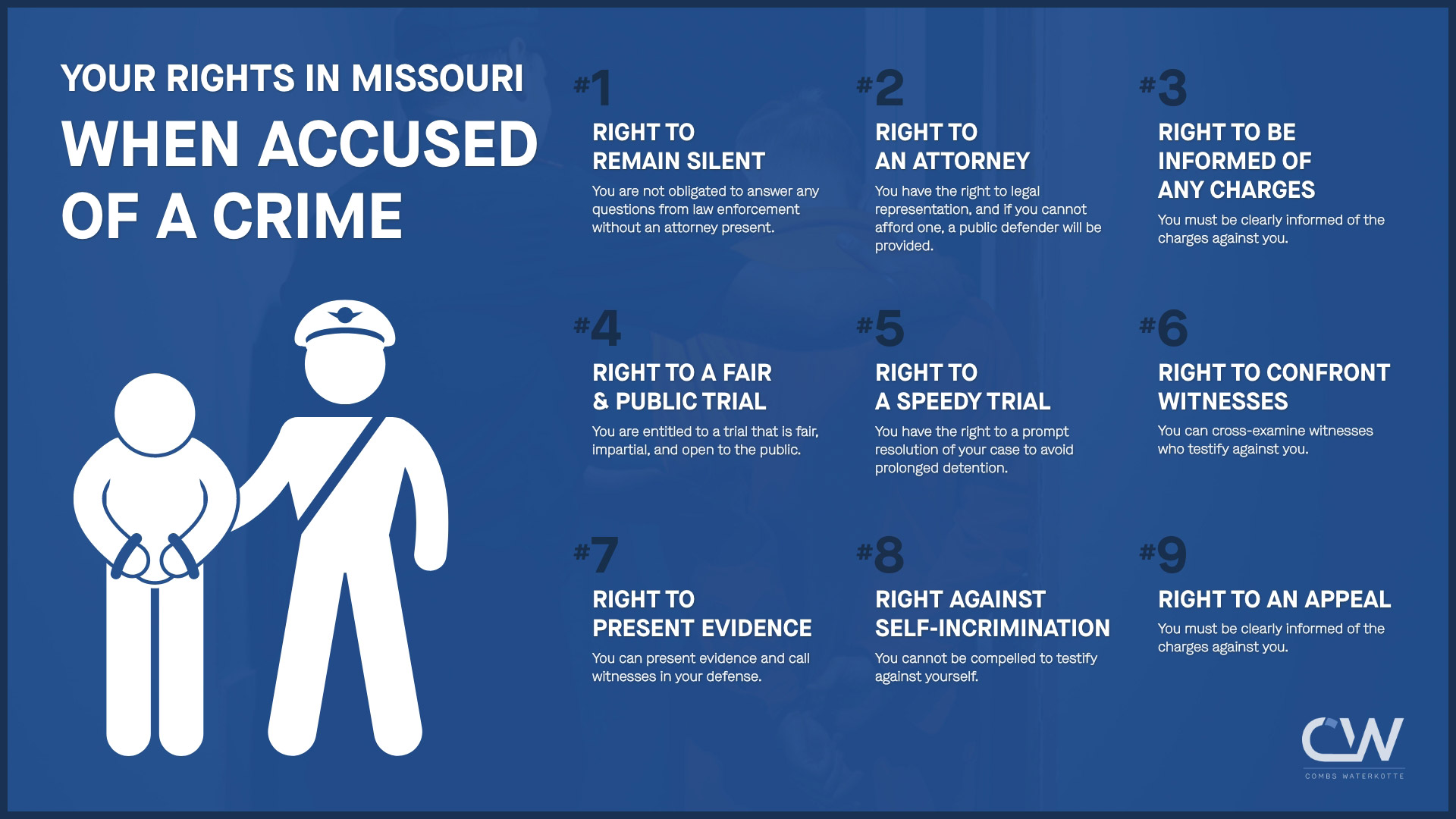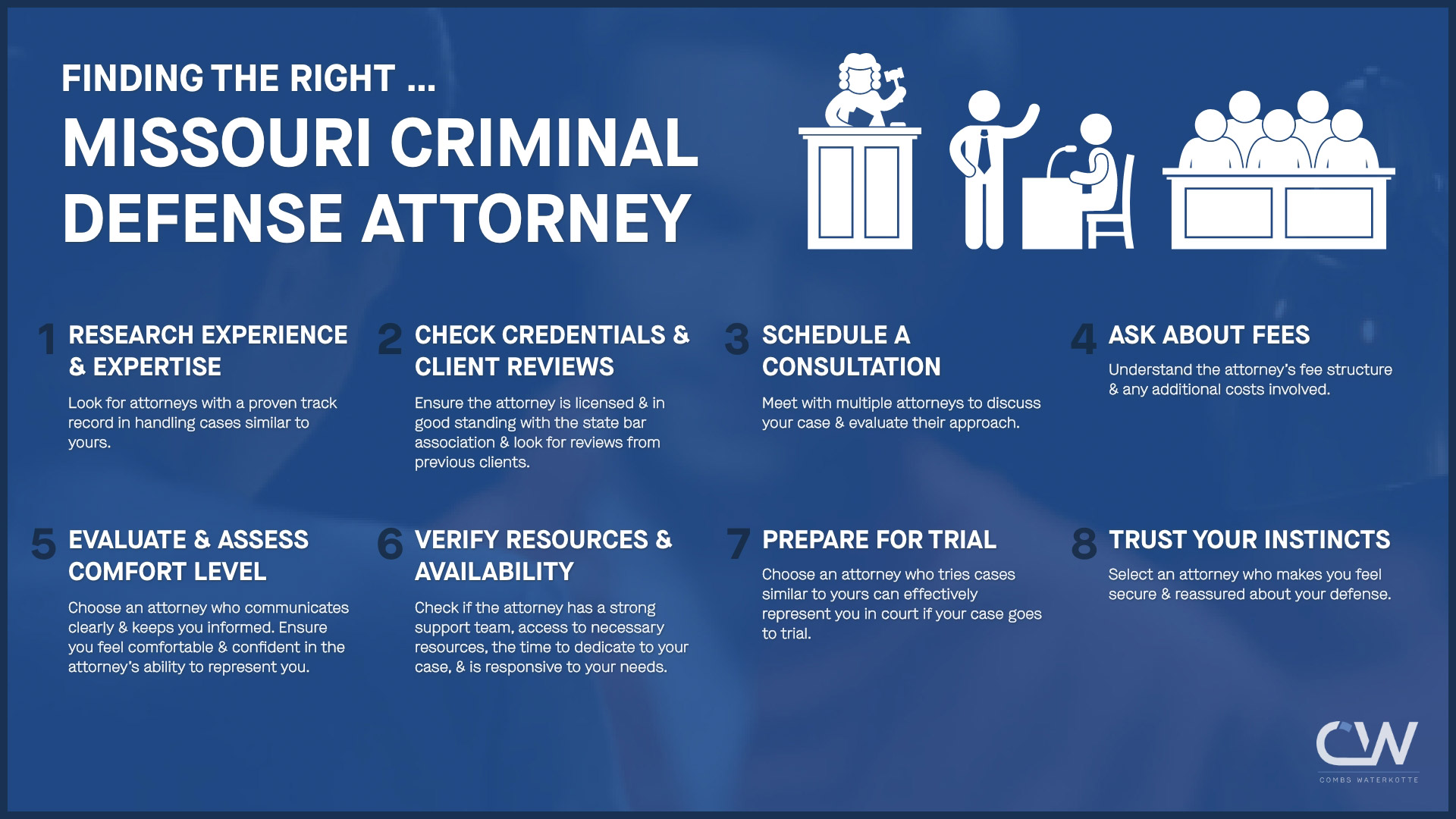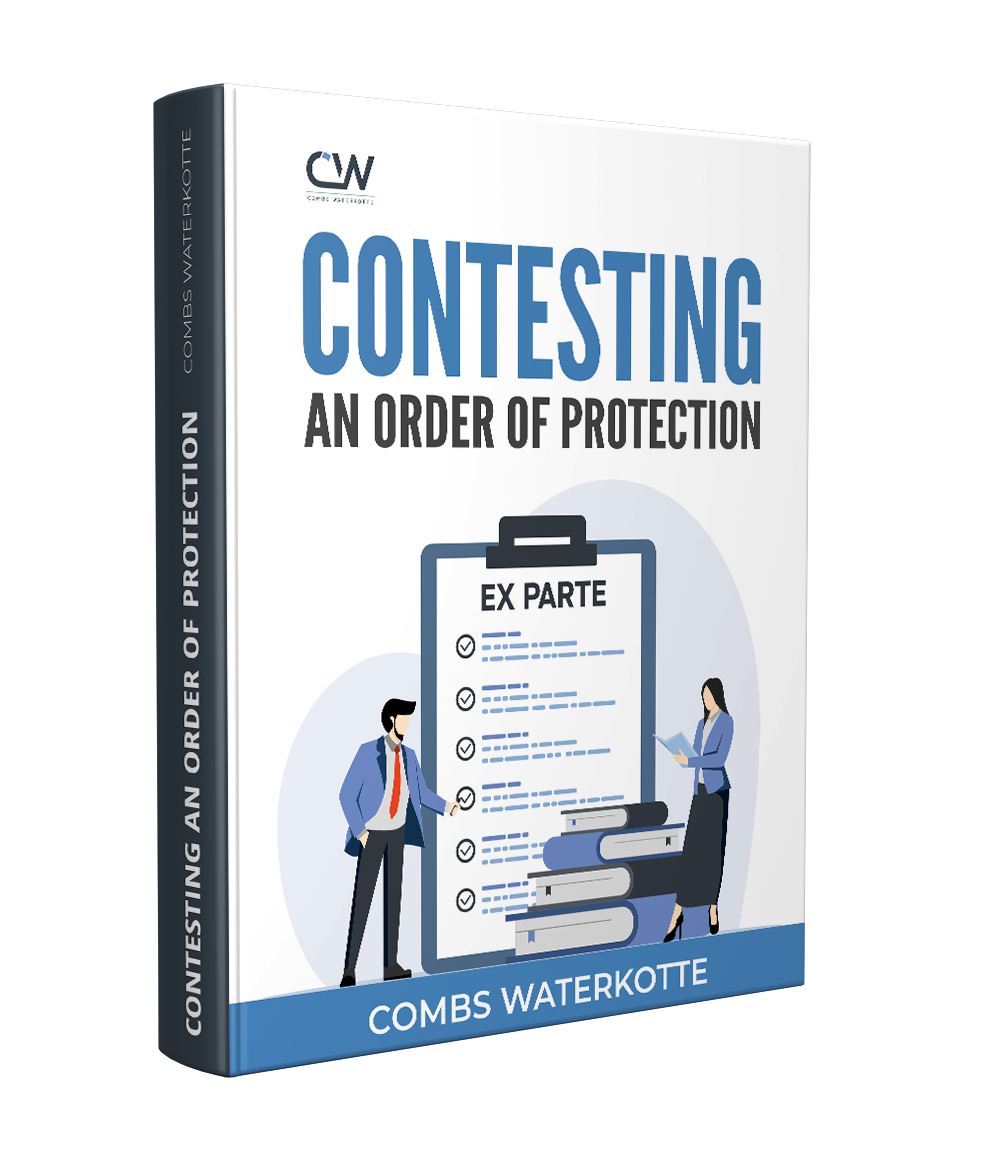Additional Links

Understanding Theft and Larceny Charges in Missouri
Theft and larceny crimes in Missouri cover a wide range of offenses, from minor shoplifting cases to serious felony theft charges. Under Missouri law, theft occurs when someone takes another person’s property without consent and with the intent to permanently deprive them of it. However, not all theft cases are clear-cut—misunderstandings, false accusations, or poor evidence collection by law enforcement can lead to wrongful charges.
At Combs Waterkotte, we know that one mistake shouldn’t define your future. Our experienced St. Louis theft and larceny lawyers fight aggressively to protect your rights, challenge the prosecution’s case, and help you avoid harsh penalties. Call us now at (314) 900-HELP.

St. Louis Theft Laws: What Qualifies as Theft in Missouri?
The Missouri legal system distinguishes theft from other property crimes like burglary or robbery. Theft (also called larceny) involves taking property, money, or services without permission. Under Missouri Revised Statute §570.030, key elements of theft include:
- Intent: The person accused must have intended to steal the property permanently.
- Lack of Consent: The owner did not willingly give up the property.
- Possession: The accused had actual or constructive possession of the item.
Missouri law classifies theft charges based on the value of the stolen property, as well as any aggravating factors such as prior offenses or stolen items like firearms or vehicles.

St. Louis Theft Laws: Classification and Penalties
Missouri categorizes theft offenses based on the value of the stolen property and the type of item taken. The severity of the charge can range from a misdemeanor to a serious felony.
Class D Misdemeanor Theft
- Offense: First-time theft of property worth less than $150.
- Penalty: Fine up to $500.
Class A Misdemeanor Theft
- Offense: Stealing something worth between $150 and $750.
- Penalty: Up to one year in jail and a fine up to $2,000.
Class E Felony Theft
- Offense: Theft of any of the following:
- An animal.
- A catalytic converter.
- A letter, package, or similar item that was delivered but not yet received.
- A fourth theft-related crime within ten years, after three previous convictions.
- Penalty: Up to four years in prison.
Class D Felony Theft
- Offense: Theft involving any of the following:
- Property or services worth between $750 and $25,000.
- Stealing directly from a person (like snatching a wallet).
- Motor vehicles, boats, or aircraft.
- A will or unrecorded property deed.
- Credit or debit cards.
- Firearms or explosives.
- An American flag meant for public display.
- Official government documents or legal records.
- Livestock, fish meant for sale, or protected wildlife.
- Drugs or controlled substances.
- Ammonium nitrate (a fertilizer sometimes used in explosives).
- Metal wiring, transformers, or fuel-related equipment.
- Materials used to make methamphetamine or similar drugs.
- Penalty: Up to seven years in prison and a fine up to $5,000.
Class C Felony Theft
- Offense: Stealing property or services worth **$25,000 or more**, or theft of an ATM or its contents.
- Penalty: Three to ten years in prison and a fine up to $5,000.
Other Theft-Related Offenses in St. Louis, MO
- Shoplifting: Considered a form of stealing, with penalties depending on the value of the stolen goods.
- Identity Theft: Using another person's identifying information without consent, punishable under Missouri law.
Legal Defenses Against Theft & Larceny Charges in St. Louis, MO
At Combs Waterkotte, we understand that being accused of theft does not mean you are guilty. Many theft charges are based on misunderstandings, false accusations, or weak evidence. Our experienced defense attorneys carefully examine every aspect of your case, looking for ways to challenge the prosecution’s claims. Depending on the circumstances, we may be able to get your charges reduced or dismissed entirely. Common defense strategies include:
- Mistaken Identity: Theft charges often rely on eyewitness testimony, which can be unreliable. If there is poor surveillance footage, unclear descriptions, or weak evidence, we will challenge the prosecution's ability to prove you were the person involved.
- Ownership or Right to Possession: If you had a good-faith belief that the property was yours or that you had permission to use it, this could be a strong defense. In many cases, disputes over ownership can be resolved without criminal charges.
- Lack of Intent: Theft requires the intent to permanently deprive someone of their property. If the item was borrowed, taken by mistake, or meant to be returned, we can argue that there was no criminal intent.
- Entrapment: If law enforcement pressured or tricked you into committing theft, this may be a valid defense. Police cannot encourage someone to commit a crime they otherwise wouldn’t have committed.
- Duress: If you were forced or threatened into committing theft due to blackmail, coercion, or threats of harm, the law may recognize that you acted under duress and should not be held criminally responsible.
- Insufficient Evidence: The prosecution must prove guilt beyond a reasonable doubt. If they lack physical evidence, reliable witnesses, or a clear motive, we will aggressively challenge their case and push for a dismissal.
- Violation of Your Rights: If your Fourth Amendment rights were violated due to an illegal search and seizure, we can move to have the evidence suppressed. Similarly, if your Miranda rights were ignored during interrogation, we can challenge the admissibility of any statements made.
Every theft case is unique, and the right defense strategy depends on the details of your situation. The St. Louis theft lawyers at Combs Waterkotte thoroughly investigate your case, analyze the evidence, and fight to protect your future. If you are facing theft charges, don’t wait—call us today at (314) 900-HELP to discuss your options.
What to Do If You’ve Been Arrested for Theft/Larceny in St. Louis, MO
If you’ve been arrested for a theft/larceny in St. Louis, what you do next can directly impact your freedom, your case, and your future. Following these steps can significantly improve your chances of a favorable outcome:
- Step 1 — Stay Silent: You have the right to remain silent. Do not answer any questions, try to explain yourself, or make any statements about the incident. Anything you say can be used against you in court.
- Step 2 — Request a Lawyer: You must clearly tell law enforcement, “I want to speak to a lawyer.” Do not answer any further questions until your attorney is present.
- Step 3 — Do Not Resist or Argue: Stay calm and cooperate with the arrest process physically. Resisting arrest can result in additional charges.
- Step 4 — Do Not Discuss the Case with Anyone: Don't talk about your charges or what happened with friends, family, cellmates, or over the phone from jail.
- Step 5 — Do Not Post on Social Media: Anything you post can be subpoenaed and used against you.
- Step 6 — Contact Combs Waterkotte Immediately: Call us as soon as possible. Getting a skilled St. Louis theft/larceny lawyer involved early can help from the start. We are available 24/7 and can come to meet you in jail or immediately after arrest at any time.

What Happens After a Theft/Larceny Arrest in St. Louis?
Being arrested for theft in St. Louis is a fast-moving process, no matter the severity of your charge. Here’s what typically happens immediately after your arrest:
- Arrest and Booking: The police formally arrest and process you, taking fingerprints and photographs.
- Initial Bond Hearing: The court decides whether you are eligible for release on bail.
- Formal Charges: The St. Louis Circuit Court or prosecuting attorney files the official criminal complaint.
- Arraignment: You appear in court to hear the charges and enter a plea of guilty or not guilty.
- Pretrial Hearings: Your defense team and the prosecution may file motions, challenge evidence, or discuss possible plea agreements.
- Trial or Plea Resolution: Your theft/larceny case is either taken to trial or resolved through a plea deal if appropriate.
How a St. Louis Theft and Larceny Lawyer Can Help You
Combs Waterkotte provides aggressive defense strategies to protect your rights. Our legal team will:
- Investigate the allegations and gather evidence to support your defense.
- Challenge the prosecution’s case and question witness credibility.
- Determine if your constitutional rights were violated, such as unlawful searches or lack of due process.
- Negotiate with prosecutors to reduce or dismiss charges when possible.
- Represent you at trial and fight for a not guilty verdict.
A theft conviction can have serious consequences, from jail time to a permanent criminal record that affects your employment and future opportunities. The sooner you contact an attorney, the better your chances of a successful defense.


































